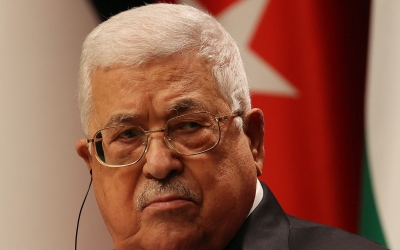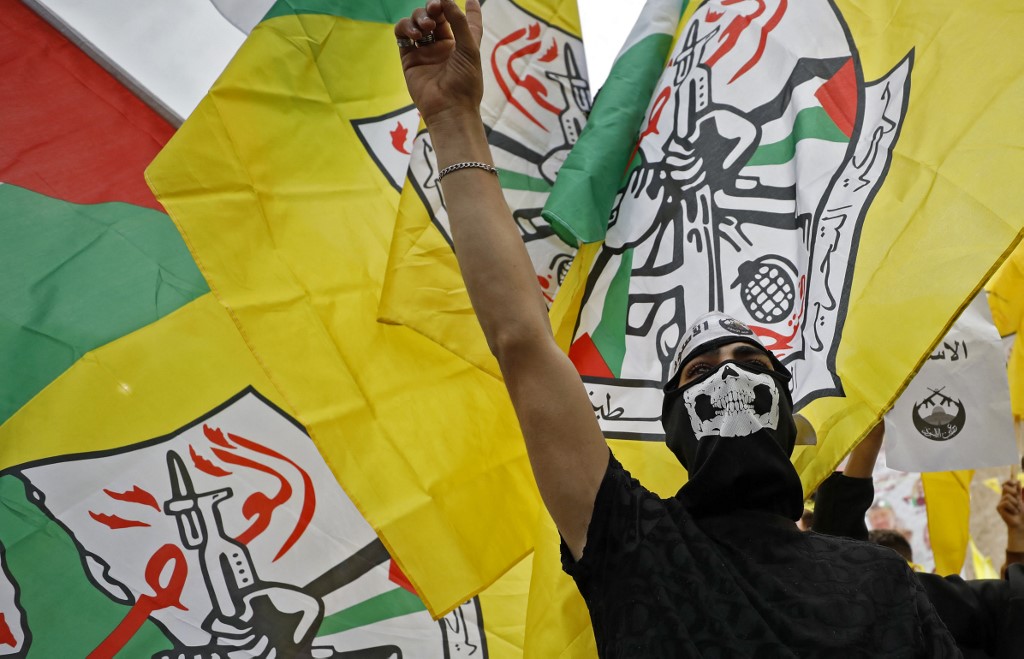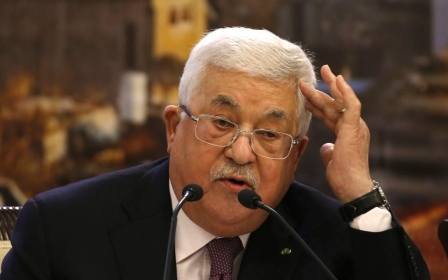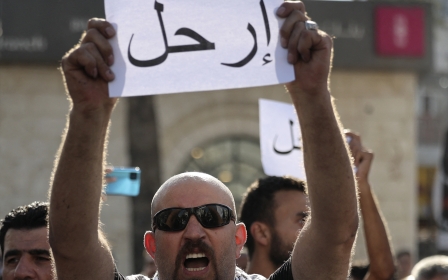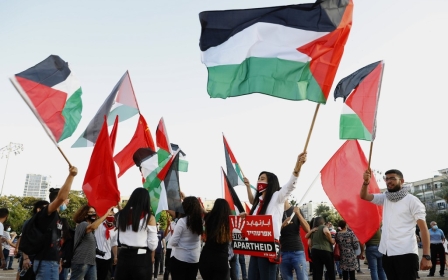Palestine: The Fatah ship is sinking fast. Elections must be held now
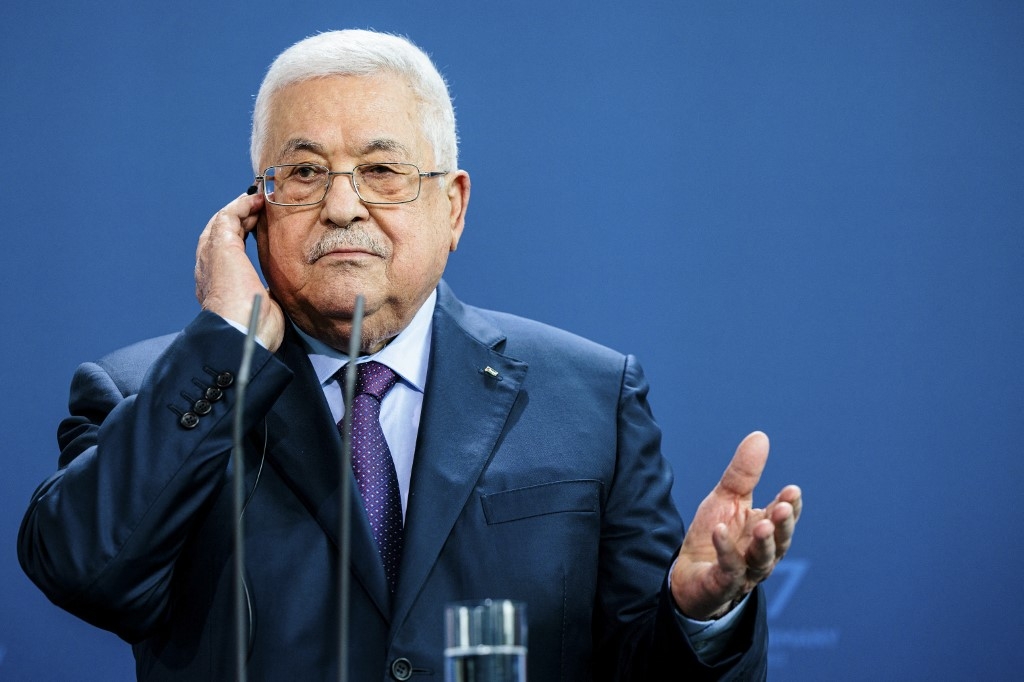
Fatah, the Palestinian national liberation movement, emerged from the heart of the post-Nakba disorientation and material devastation in the refugee camps and diaspora. Devoid of doctrinaire ideology, it included a wide spectrum of worldviews, from Marxist leftists to Muslim Brotherhood Islamists.
Its foundation dates back to 1957, but the official inauguration was declared on 1 January 1965, with the first armed operation against Israel inside occupied Palestine, granting Fatah the honorary title al-talqa al-oula (the first shot).
The title (and act) provided the movement with revolutionary privilege, one that has shape-shifted throughout the consecutive phases of the struggle to mean different things.
Initially indicative of armed resistance, the privilege evolved to signify Fatah’s revolutionary centrality, then monopoly over the trajectory of the national liberation project. Without consulting with the Palestinians, Fatah and the Palestine Liberation Organisation (PLO) engaged in "peace talks" with Israel, leading to the Oslo Accords in 1993.
This saw the Palestinian leadership concede most of historic Palestine to Israel in return for conditional self-rule on a fraction of the land.
As Oslo produced the Palestinian National Authority (PA), Fatah’s revolutionary privilege transformed into a sense of "unrivalled deservedness" to reside over the entirety of the Palestine decision-making sphere, including the overarching PLO. Developments since Oslo have done very little to change that self-image, especially among Fatah’s old guard, resulting in deepened crevices in the body of Palestinian realpolitik and Fatah’s internal coherence.
Yasser Arafat casually claimed that Fatah was an umbrella for all Palestinians. His death in 2004, however, revealed that much of the movement’s coherence was anchored in his person and his revolutionary legacy.
His tireless dedication and his ability to steer the revolution through often unfavourable terrains of international and Arab geopolitics made him almost synonymous with the cause. That - and being a patriarchal figure for many Palestinians, “the old man ” - were traits unavailable to his successor, Mahmoud Abbas.
Different approach
Abbas inherited much of his legitimacy from Arafat’s legacy, putting him on top of the candidates’ list in the 2005 presidential election. He, nonetheless, took a different approach, substituting Arafat’s revolutionary ethos with negotiation and diplomacy.
He advocated only peaceful, popular resistance - though it is unclear what that entails, seeing as the PA has been involved in cracking down on peaceful protests against the Israeli occupation and the PA’s policies.
Many Fatah members hoped Abbas would bring in a dynamic leadership. But he proved to be a more negative shadow of Arafat, more authoritarian and lacking Arafat’s charisma and connection with the people.
He incrementally concentrated all powers, including the PLO bodies and court system, in his hands. And, through intimidation and privileges, he created a small circle of ageing yes-men, who typically acted independently of the will of the people and detached from - and blocked - Fatah’s younger cadres.
Theoretically, Abbas’s Fatah acknowledges pluralism. Sharing power, however, was and continues to be a different matter. When Hamas sweepingly won the 2006 parliamentary elections, Fatah did not recognise the results and refused to hand over power to the Islamist movement.
Soon after the elections, the PA was placed under economic sanctions by Israel, the US and the EU, to thwart the results and force Hamas into a more agreeable form of governance, modelled on Abbas’ PA and approved by Israel.
The PA went as far as seeking Israel’s help to push Hamas out of the PA institutions in the West Bank and, at later stages, imposing sanctions on the Gaza Strip, Hamas’ power base.
Two separate entities
As such, with hindsight, Hamas’s violent takeover of Gaza in June 2007 was perhaps inevitable. The movement was stuck between an unrealisable government and an uncertain path back to being only an opposition movement confined to political and armed resistance against Israel.
Between then and now, the West Bank and Gaza emerged as two separate entities, ruled by Fatah and Hamas respectively. Both, nonetheless, still function under the PA administrative system as dictated by Oslo. All efforts since to reinstate national unity have failed.
For Abbas and the PA, reconciliation with Hamas could threaten Fatah’s power monopoly and, possibly, the PA's very existence
For Abbas and the PA, reconciliation with Hamas could threaten Fatah’s power monopoly and, possibly, the PA's very existence. As it stands today, the legitimacy of the PA is contingent upon the approval of donor countries and, by extension, Israel. This is interpreted by Palestinians as running counter to their national interests.
It does not help that Abbas continues to defend security coordination with Israel, suppress dissidence, and ban armed resistance. It did not help either that Israel openly vowed to strengthen the PA by alleviating economic restrictions on Palestinians in order to weaken Hamas.
Abbas’s unpopularity worsened after he cancelled the long-awaited election in 2021, declaredly due to Israel’s refusal to hold the elections in Jerusalem. More likely, he feared a sweeping victory for Hamas.
Identity crisis
Meanwhile, as the octogenarian leader continues to control Fatah, the PA and the PLO over a decade after his presidency expired, many Fatah activists are facing an identity crisis regarding the nature of their movement and their position in it.
Their identification with the PA and its security forces, and the unpopularity of these bodies, have reflected negatively on their self-image and the people’s perception of them as bearers of the national project.
Those at the top are comfortable maintaining the status quo, and happy to nourish the culture where government positions and privileges are deemed rewards for loyalty, and not for serving public interests.
What unifies both camps is the fear of Hamas’s growing influence, forcing many of them into defensive factionalism, sometimes at the expense of the cause.
Fatah’s revolutionary trajectory is not very different from most anti-colonial movements after the Second World War. It is not immune to many of their ailments either.
It moved from idealism, to revisionism, to realism and concessions, and now, occasionally, to being an obstacle to its own original ethos and goals. The movement has been reduced to a truncated, internally fractured authority under occupation with a leadership that only represents the lowest common denominators.
Unless elections are held, fresh blood injected, and reforms implemented - certainly regarding the arrangements with Tel Aviv - the Fatah ship will sink deeper.
The views expressed in this article belong to the author and do not necessarily reflect the editorial policy of Middle East Eye.
Middle East Eye delivers independent and unrivalled coverage and analysis of the Middle East, North Africa and beyond. To learn more about republishing this content and the associated fees, please fill out this form. More about MEE can be found here.



